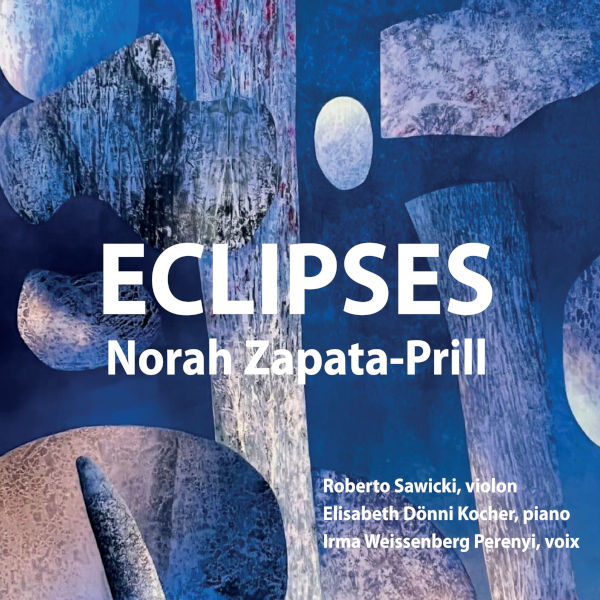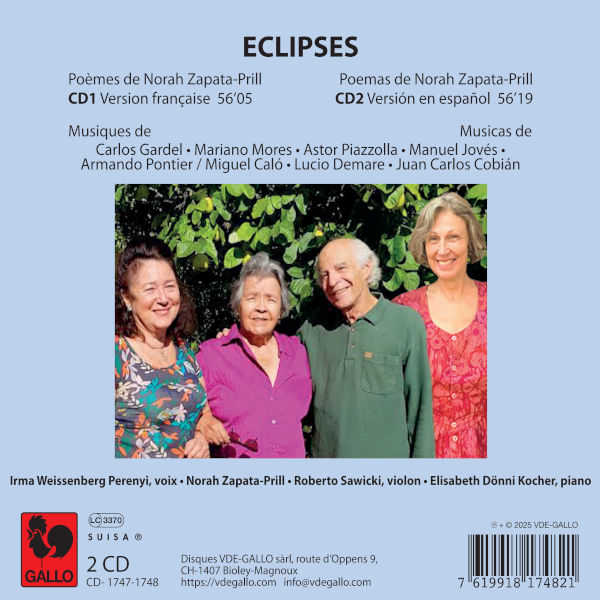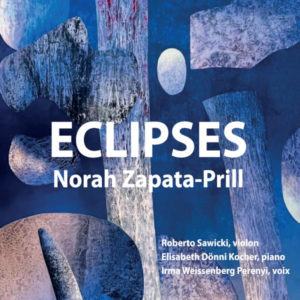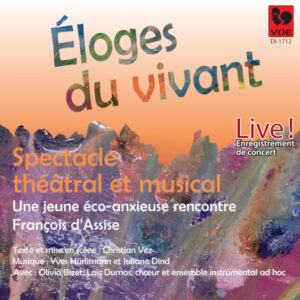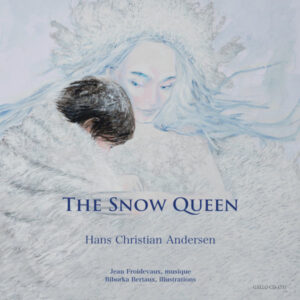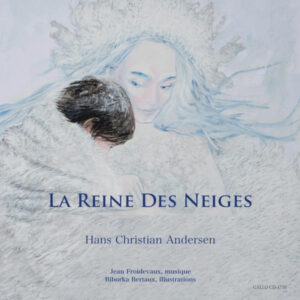Quelques Extraits / Some Excerpts
Eclipses: 57 Poems by Norah Zapata-Prill – Irma Weissenberg Perenyi (French version available here for download and streaming)
Eclipses: 57 Poems by Norah ZAPATA-PRILL (French version available here for download and streaming)
Link to purchase the double album CD
One
Ceiling
White hospital walls without ornaments
Canvases
Parlor where my anguish floats without oars or shore
And
Sometimes
Good Fridays of a Christ transfiguring thorns.
Two
I received postcards with paintings by Monet:
His water lily ponds steeped in light and shadow
His poppy fields
His violets
The woman with a parasol on a windy day
His reborn suns
His cloudy sunsets
His twilights where offerings of nostalgic indigo settle
Monet
With his hours tinted in timeless beauty
Three
When pain gnaws
Like today
I imagine fields of blooming dandelions
Almond trees whitened by so much love for full moons
I adorn myself with colors
I remember the scent of jasmine from my home
Of forests of blossoming linden trees
Of broom
Of daffodils
Of blue madrigals of rosemary on the hills
I give in to the senses
I dance with the rays of light that filter through my window.
Roberto Sawicki, violin
Elisabeth Dönni Kocher, piano
Irma Weissenberg Perenyi, narrator
PREFACE
With *Eclipses*, poet Norah Zapata-Prill explores a realm of experience that few writers have addressed in the first person. We already know that her poetry speaks of the intensity of concrete, evident experience, both personal and collective: bodies, landscapes, encounters, phenomena—those manifestations in which the unfathomable within humanity and the world is brought into question.
Here, however, she enters a different zone. *Eclipses* carries into language what emerged and was revealed through a liminal experience: in the life of a severely wounded body, in the apprehension of death, in episodes of extreme pain and fear, even in dreams—in other words, within the vast complexity that characterizes a clinical situation.
For this book to exist, a completely unique experience was necessary—an experience that, as we shall see, gave rise to truths and visions.
“The Milky Way keeps me in a trance
It shatters my mirrors
My masks
Into pieces
I seek to make sense of this rift in the light of my wounded self”
Trances and visions are revealed to us here, because the personal and unique experience brought into language—offered through writing—becomes a conceptual, inclusive, and open experience. It becomes a possibility for human understanding.
The word *eclipse* comes from the Greek ἔκλειψις, meaning “disappearance,” “abandonment,” and also from ἐκλείπω: “I abandon.” In ancient astronomy, the *ecliptic* was the line of motion where eclipses occurred.
Today, we know that even total solar eclipses allow a halo of light to shine through, and that some spectacular lunar eclipses tint the Moon a coppery hue. There is no absolute disappearance, no complete abandonment.
It is along these abyssal lines of motion between light and darkness, between brightness and concealment, that life takes shape. Something of what we do not see is there.
- Categories
- Composers
- Interprets
- Booklet
